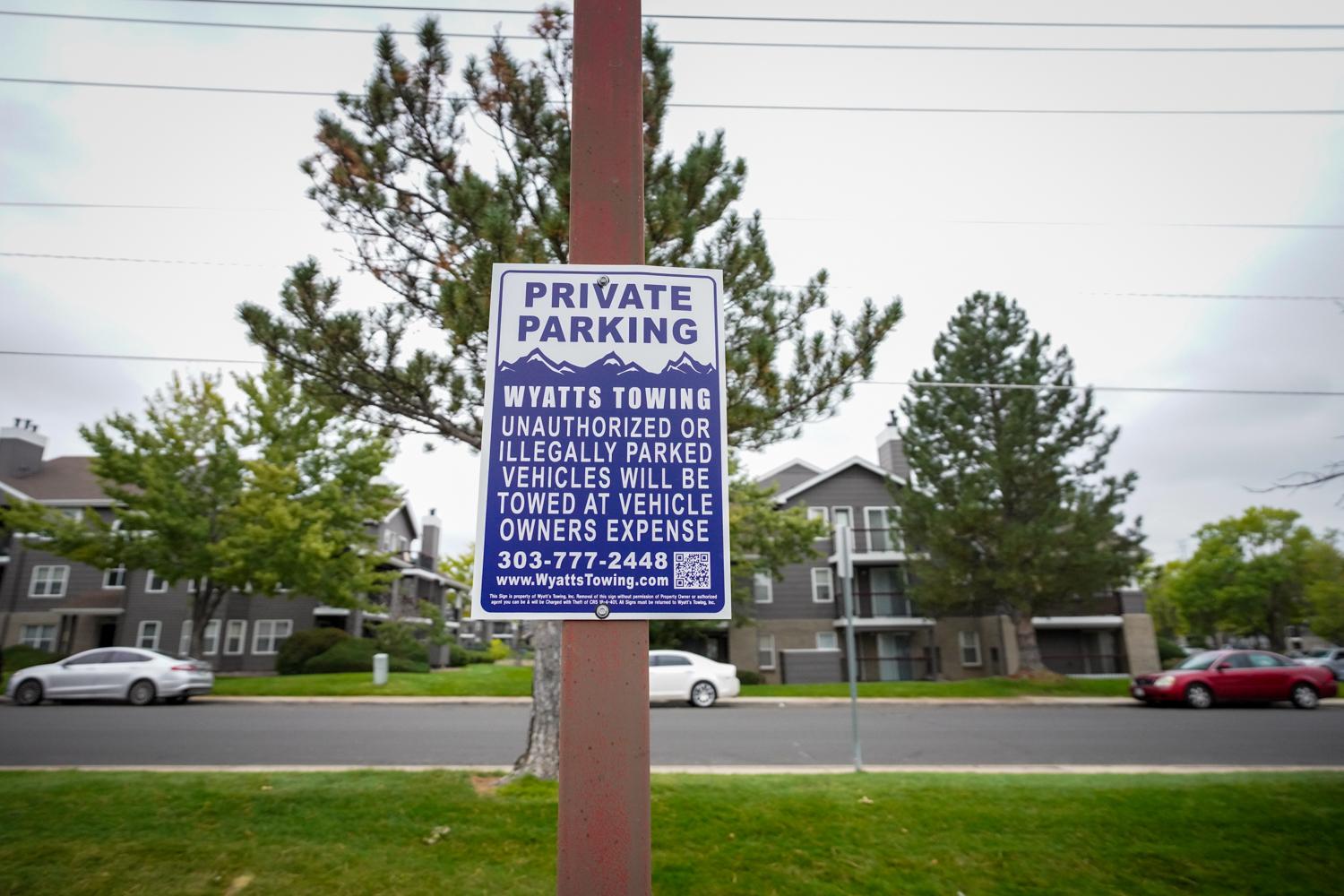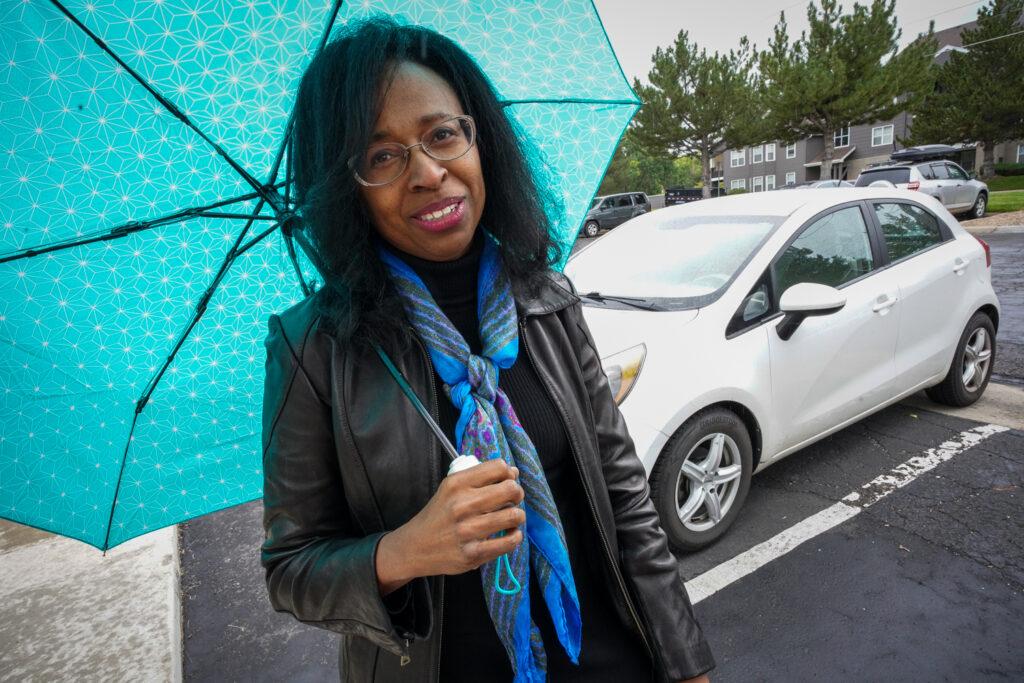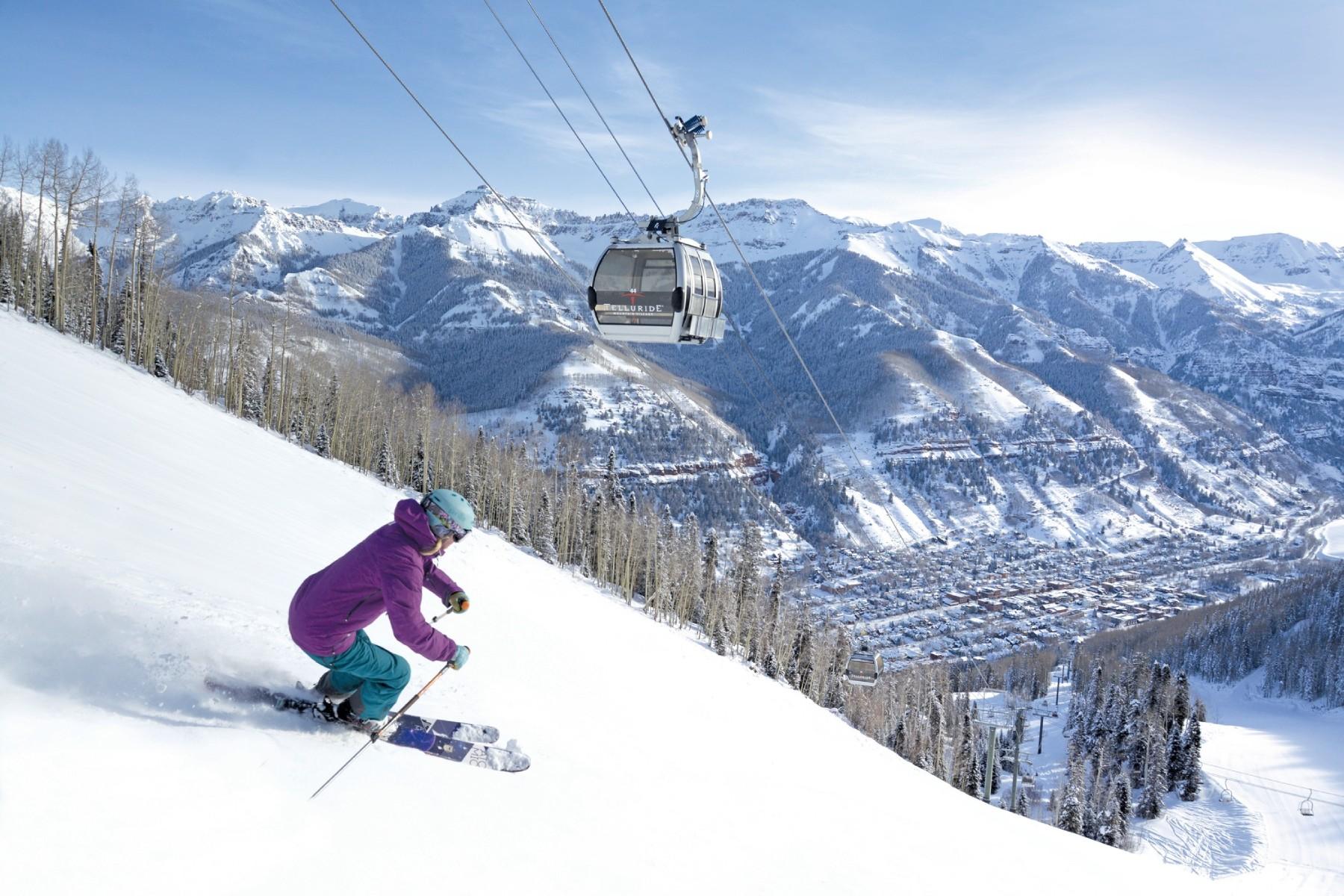
From the beginning, Felicia Bryant suspected there was something weird about the way her car was towed in August.
She was in the middle of moving into a new apartment complex in Aurora. After a long day of unpacking, she parked her white Kia Rio on the street outside her front door, making sure to hang a parking permit on her rearview mirror.
The next morning, she walked outside to a surprise: Her car was nowhere in sight.
“It takes a minute for it to sink in that your car is really gone,” she said. “It truly is an awful feeling.”
She assumed someone stole it. It wasn’t until she spoke with a leasing agent that she found out a company called Wyatt’s Towing had taken it overnight. The whole situation confused Bryant. She had a parking permit displayed. She wasn’t parked in a fire lane. She wasn’t blocking anyone else’s car.
The tow threw a wrench in her moving plans, and the fees to get it back cost $470, plus tax.
“I am fortunate financially that this didn't put me over the edge in any way,” Bryant said. “I was just annoyed and mad and wanted my car and my money back.”
Protections for everyday drivers
Thousands of people get their cars towed in Colorado each year.
But Bryant’s episode was unique. She was one of the first Coloradans to have her car towed after the implementation of a new law designed to protect drivers against predatory towing on private property. The “Towing Bill of Rights” legislation passed during the most recent legislative session and went into effect Aug. 10.
The law makes a number of changes to state rules that deter companies from removing cars from residential areas like apartment complexes, mobile home parks and neighborhoods. For example, towers have to give 24 hours notice before taking vehicles in most cases.
“There are good actors in the towing industry, and there’s others that are just predatory,” said Rep. Naquetta Ricks, a Democrat and co-sponsor. “They’ll just circle around apartment complexes looking for any excuse to take your car. That’s what we’re after.”
Other new rules include the following:
- Companies can’t tow solely for expired registration and plates anymore, except upon order from law enforcement.
- Companies must release a vehicle, at no charge and upon request, if the vehicle is still on private property when an owner interrupts a tow.
- Towing companies must release towed motor vehicles once they are paid15 percent of the overall fees, up to $60.
- Companies must release the contents of vehicles towed from private property upon request, even if you can’t pay to get your car back.
The law also gives more teeth to state regulators who oversee the towing industry, including an extra $100,000 for the Colorado Public Utilities Commission. That money will go toward hiring an additional full-time investigator to look into consumer complaints. The PUC estimates it gets more than 400 such complaints each year, with numbers growing annually.
Bryant, who works as an analyst with a financial tech company, discovered the law after doing research online and made it her personal mission to recover her car — and get her $470 back. She suspected Wyatt’s violated at least one of the state’s new rules.
She wanted to share her experience to help other residents understand their rights, she said.
“This can happen to anyone,” Bryant said. “And I realize if I wasn’t in the financial situation I’m in now, my story could have been a lot worse.”
Research and rescue
After realizing her car had been towed, Bryant got a ride from her mom to Wyatts Towing’s local impound lot.
There, she spoke with a receptionist who told her that her car had been towed due to an expired parking permit, Bryant said. That reasoning didn’t make sense to Bryant, because she had just purchased a permit from her property manager and hung it on her rearview mirror.
“So I paid with a credit card and got a receipt from Wyatt’s with the false statement that I had no permit,” she said. “They let me into the tow yard and before I touched my car, I pulled out my phone.”
She recorded video of her zooming into the front windshield of her Kia, making note of the yellow parking permit hanging in clear view. In the video, moving boxes and a tipped-over house plant are still visible in the passenger seat.
After taking the video, Bryant paid the $470 tow fee, got her keys and drove home. There, she started to gather the facts of her case together like a personal investigator. That night, she drafted an email of the incident with her name, address and a timeline of her towing incident and submitted it through a portal on the Public Utilities Commission’s website.
She also sent a copy of her complaint to an email address where the PUC also accepts complaints against towing companies. She attached copies of her receipts from Wyatt’s and a link to her cell phone video of her valid permit in the complaint. She also cc’d her apartment complex and local state legislators.
Then, she waited.

The refund
Bryant’s complaint kickstarted a day of email correspondence between state investigators and Wyatt’s.
A PUC staffer reached out to the towing company. In their request, they asked for an explanation for why Bryant’s car was towed.
The same day, a leasing agent from Bryant’s apartment complex also reached out to Wyatt’s over email, asking for more information.
After looking into the case, the company realized one of its drivers had mistaken her parking permit for a fake and towed it on the spot. Wyatt’s immediately refunded her credit card charge, said Trevor Forbes, Wyatt’s CEO.
“We are truly sorry for the inconvenience Ms. Bryant experienced and we have made some operational changes to prevent this specific mistake from occurring in the future,” he said.
Bryant believes Wyatt’s violated the Towing Bill of Rights’ new 24-hour notice rule. But the company disagrees, Forbes said, because the law allows for certain exceptions including when cars are parked in handicap spots, fire lanes or in a spot that requires a permit for residents.
Public parking spaces, such as street meters, aren’t protected by the new rules either, he said.
“Those circumstances are very important,” Forbes said. “People think in Colorado now you get free parking anywhere for 24 hours and it doesn't matter. And that's not true.”
PUC representatives declined to discuss the specifics of Bryant’s complaint and the legality of the tow, stating that it was still under review by investigators. The agency referred CPR News to a page on its website about the new rules around towing on private property.
Two days after Bryant submitted her complaint, a PUC staff member called her to let her know they had spoken with a representative from Wyatt’s Towing. She told Bryant the company admitted it had made a mistake, and would refund Bryant’s money in full.
“I didn't expect to have a remedy, especially that quick,” Bryant said. “So that was great.”
Her advice to anyone who has gotten towed is to keep track of your communication with your towing company on paper and file a complaint as soon as you recover your vehicle.
“Do it while it’s still fresh on your mind,” Bryant said. “Get it to the eyeballs of people who can do something with it.”
Still a new process
It’s unclear how many cases like Bryant’s the PUC has investigated since the new towing law took effect in August. The commission tracks complaints from consumers, but the latest data available is from July of this year.
“The regulations are so new, there hasn’t been significant time in which to see a trend,” said Gail Connors, media relations chief for the PUC.
The commission has updated its website to better educate consumers about the new law, including tips for how to submit a complaint. A list of exceptions to the new 24-hour notice rule is also posted there.
If you still think your car has been towed illegally, Connors suggests filing a complaint with “very specific” details of your situation and why you believe you were illegally towed.
Other details to share include the following, according to Connors:
- What led up to the tow?
- Have you retrieved your vehicle yet?
- Did you park in a lot that required a permit?
The new law was designed to protect lower-income Coloradans who have historically been at the highest risk for predatory towing. That’s who will likely benefit most from the changes, Ricks, the co-sponsor said.
“For some people who are living on the margins, $400 or $500 is the difference between daycare or rent or food,” she said. “So we really just want to make sure that we're all living in this place so that we can coexist with tow truck companies and drivers can feel secure when they park their car and they're not breaking the law.”









